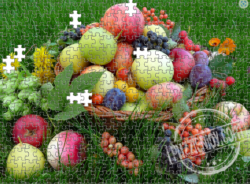Solving puzzles can provide several benefits for elderly people. Here are some ways in which puzzles can help:
Improves Cognitive Function: Solving puzzles, such as jigsaw puzzles, crossword puzzles, and brain teasers, can aid in the development of cognitive reserve. Cognitive reserve refers to the brain’s ability to withstand age-related changes and can help in the fight against memory loss and dementias like Alzheimer’s disease as people age .
Enhances Problem-Solving Skills: Puzzles require critical thinking and problem-solving skills. They provide an opportunity for older individuals to use their cognitive abilities and engage in logical and analytical thinking .
Boosts Memory: Working on puzzles reinforces connections between brain cells and increases the generation of new relationships. This improves mental speed, thought processes, and short-term memory.
Improves Visual-Spatial Reasoning: Jigsaw puzzles, in particular, ask individuals to take different approaches to assembling the pieces. This process of looking for different pieces and placing them within a larger image helps improve spatial reasoning.
Reduces Cognitive Decline: Studies have shown that regularly engaging in puzzles can help reduce the rate of cognitive decline in older adults.
Provides Stress Relief: Puzzles can serve as a stress reliever and a form of meditation. They offer a peaceful and calming activity that can help older individuals relax and find a sense of accomplishment.
Promotes Social Interaction: Solving puzzles can be a social activity that encourages interaction with others. It can be done individually or in a group, allowing for social engagement and connection .
It’s important to note that the benefits of puzzles may vary for each individual, and it’s always a good idea to choose puzzles that suit the individual’s ability level and preferences .
Overall, solving puzzles can be a beneficial and enjoyable activity for elderly people, providing mental stimulation, cognitive exercise, and a sense of accomplishment.

